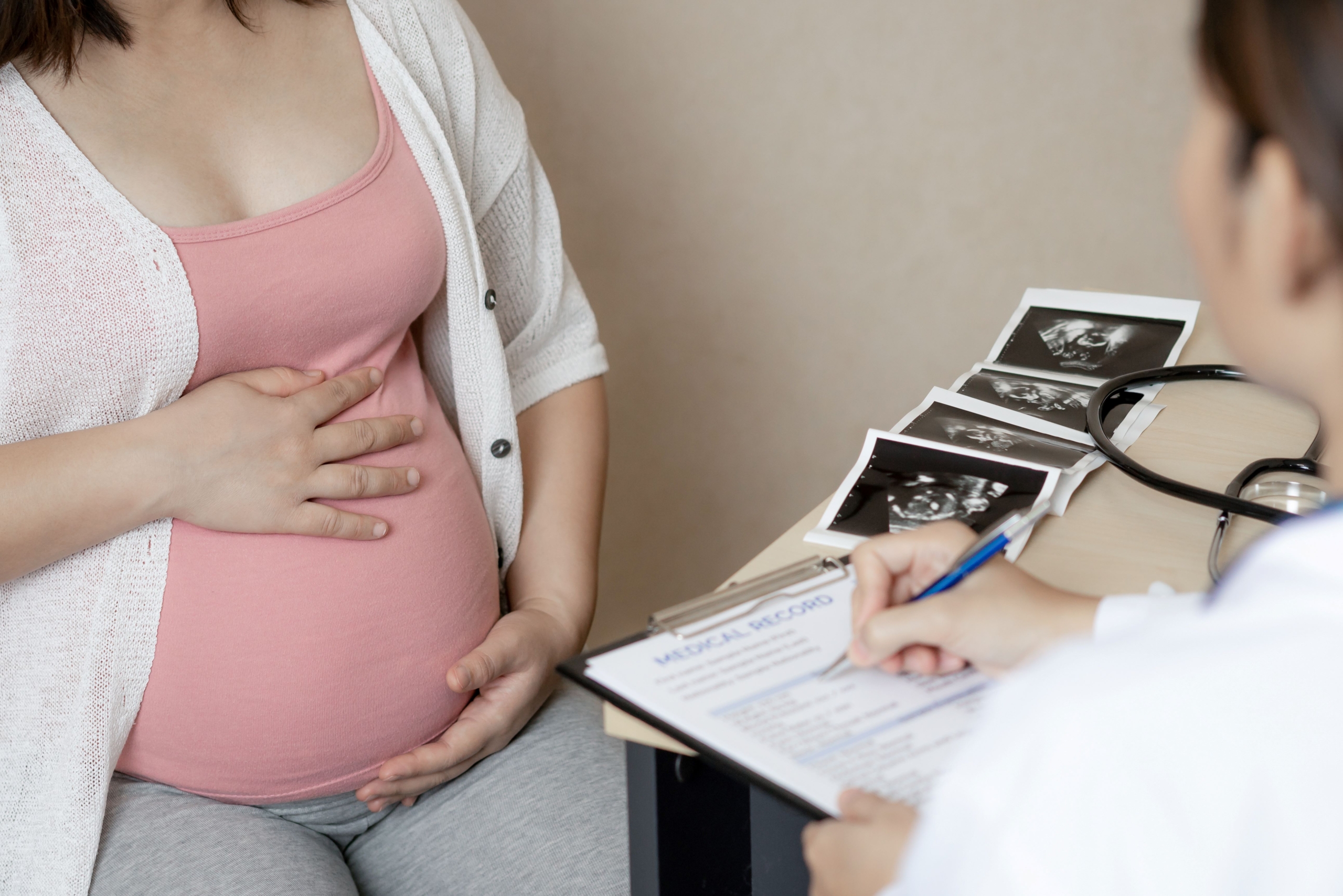Maternal and Child Health Research

Aspirin and severe maternal morbidities
In Canada, the number of life-threatening health conditions during pregnancy, delivery and immediately after a delivery, has increased over time, affecting 14 per 1,000 deliveries. The most common severe maternal morbidities (SMM) are preeclampsia, cardiac conditions and severe blood loss.
Aspirin (ASA) has been shown to reduce the chance of developing preeclampsia when given before 20 weeks of pregnancy. However, the benefit of aspirin for SMM and other pregnancy complications is not clear.
This population-based cohort study of Canadian women examines:
- The risk of SMM and adverse pregnancy outcomes between users of low-dose ASA and non-users of ASA;
- The effects of ASA use and social inequities on SMM and adverse pregnancy outcomes; and
- The combined effect of ASA use and SARS-CoV-2 infection on SMM and adverse pregnancy outcomes.
Dr. Grandi is the Nominated Principal Investigator on this CIHR-funded project.
Co-Principal Investigator: Dr. Joel Ray.
Hypothyroidism in pregnancy
Hypothyroidism is one of the most common endocrine disorders during pregnancy. It is characterized by an underactive thyroid and diagnosed based on high levels of thyroid stimulating hormone (TSH) with symptoms such as weight gain, fatigue and dry skin.
Subclinical hypothyroidism (SCH) occurs in 2.0–2.5% of pregnancies and is characterized by elevated TSH levels in the first trimester and normal thyroxine levels with no or mild symptoms of hypothyroidism.
The overall aim of this study is to determine if the use of levothyroxine (Synthroid®) during pregnancy is associated with the risk of
- adverse pregnancy outcomes in women with SCH,
- neurodevelopmental (e.g., autism, ADHD) and cardiometabolic outcomes in children born to women with SCH.
This project is funded by the American Thyroid Association (Dr. Grandi is the Principal Investigator) and the CIHR (Dr. Grandi is a co-Investigator, with the Principle Investigator Dr. Kristian Filion).
Optimizing risk prediction in women with a history of pregnancy complications
 Over the last decade, the incidence of serious maternal complications during pregnancy has steadily increased. These complications, including hypertensive disorders in pregnancy, gestational diabetes, preterm birth, stillbirth and placental abruption, are associated with an increased risk of poor maternal and fetal outcomes in pregnancy. These complications also contribute to adverse consequences for a woman’s longer-term health.
Over the last decade, the incidence of serious maternal complications during pregnancy has steadily increased. These complications, including hypertensive disorders in pregnancy, gestational diabetes, preterm birth, stillbirth and placental abruption, are associated with an increased risk of poor maternal and fetal outcomes in pregnancy. These complications also contribute to adverse consequences for a woman’s longer-term health.
This study aims to develop and validate risk prediction models to identify recently post-partum women at increased risk of developing:
(1) cardiovascular disease (CVD) and cardiovascular risk factors immediately after an affected pregnancy, using UK data;
(2) hypertension within 5 years following an affected pregnancy, using BC data.
Dr. Grandi is a Co-Investigator and co-lead of this CIHR-funded project with Principal Investigator: Dr. Kristian Filion.
Cardiovascular severe maternal morbidities and subsequent cardiovascular diseases

Despite improvements in maternal mortality, rates of severe maternal morbidity (SMM) have been steadily rising. A subset of these indicators, defined as cardiovascular severe maternal morbidities (CSMM), characterize cardiovascular complications during pregnancy. These indicators contribute to increased risk of maternal morbidity and mortality following an affected pregnancy.
Pre-eclampsia has been shown to increase the risk of long-term cardiovascular disease in women with an affected pregnancy. However, the contribution of CSMM to long-term cardiovascular risk in women with pre-eclampsia is unclear. Understanding how CSMM contributes to the long-term risk of cardiovascular disease can improve our ability to tailor prevention strategies for at-risk women.
The overall objective of this study is to examine the risk of cardiovascular disease, both overall and by subtypes, associated with CSMM among women with pre-eclampsia.
Dr. Grandi and Dr. Malhamé are Principal Investigators on this project.
Acetaminophen during pregnancy: What science tells us
The safety of biologic use in pregnancy

Immune-mediated diseases, specifically autoimmune disorders (AID) and asthma, are highly prevalent in women of reproductive age and uncontrolled disease activity during pregnancy has been shown to negatively influence pregnancy, and maternal and child outcomes. Over the last decade, the use of biologic medications to treat AID and severe asthma has steadily risen due to its beneficial adverse effect profile. As pregnant women are typically excluded from RCTs, the safety and effectiveness of biologics in this group remains unknown. More importantly, there is a paucity of short- and long-term data on potential adverse outcomes in children exposed in utero to these medications.
Overarching goal and specific objectives
The main goal of this project is to conduct a BIOlogic drug safety and effectiveness interNational pharmacoepidemiologIC study in pregnant women with AID and asthma and their children (BIONIC). Specifically, in women who continue versus discontinue biologic use in pregnancy for AID and asthma, separately, we will compare the risks of:
- Adverse outcomes in infants (preterm birth, small-for-gestational age, major congenital malformations) and children (severe infections from 0 to 5 years old, type 1 diabetes, juvenile AID, asthma, atopic dermatitis)
- Adverse outcomes in mothers in pregnancy (hypertensive disorders of pregnancy, spontaneous and induced abortions, stillbirths, serious infections) and ≤1-year postpartum (serious infections)
- Maternal effectiveness outcomes (asthma and AID exacerbations in pregnancy)
Dr. Grandi and Dr. Longo are Principal Investigators on this project, funded by the CIHR and the Canadian Foundation for Women’s Research .
For more information about the BIONIC study, please contact us at bionic.study@sickkids.ca
Safe prescribing and use of medications

The Canadian Mother-Child Cohort Outreach (CAMCCO-Outreach) mission is to advocate for the safe prescribing and use of medications during pregnancy using real-world evidence, lived-experiences and community and partner insights to inform the co-creation of knowledge.
This initiative leverages the CAMCCO infrastructure, including the CAMCCO-Learning platform, and collaborations with FirstExposure to support knowledge dissemination to target populations.
Dr. Grandi is a co-Investigator on the CIHR Women’s Hub grant and Member of the CAMCCO- Outreach Scientific Advisory Committee.
The safety of anti-diabetic medication use in pregnancy
Type-2 diabetes is common among women of reproductive age. If uncontrolled, diabetes can lead to serious pregnancy complications, such as high blood pressure during pregnancy and early birth. A new class of medications for type-2 diabetes, called glucagon-like peptide-1 receptor agonists (GLP-1 RA), has become a popular option for managing blood sugar and reducing risks like cardiovascular disease and obesity. However, we don’t yet know if GLP-1 RA is safe or effective when used before or during early pregnancy, since pregnant women are usually excluded from drug trials.
This study will use population-based health data from Ontario and the UK to explore how often GLP-1 RA is used by women before and during early pregnancy, and whether it affects the risk of pregnancy or birth complications.
Dr. Grandi is the Nominated Principal Investigator on this project.
Co-Principal Investigator: Dr. Robert Platt, Dr. Joel Ray.
Methodological Research Work

Target trial emulation in perinatal pharmacoepidemiology

Understanding medication safety in pregnancy is important to address potential harms and to provide pregnant individuals and their providers with evidence to support decision making. Target trial emulation (TTE) has been proposed as a method to estimate effects of medications in a real-world setting. This approach is useful in the context of medication use in pregnancy given inherent challenges (e.g., detection of pregnancies, interdependence of events, etiologically relevant windows for exposure).
We have created a working group of international leaders across academia, public sector, and industry to address aligning causal estimands with clinical and policy relevant questions regarding medication use in pregnancy using a target trial framework. The group will discuss important considerations when defining the components of the target trial touching on aspects of the complexities of this area, including etiologically relevant time windows, point versus sustained treatments, and competing events.
This effort is being co-led by Dr. Mollie Wood, Dr. Sonia Grandi, and Dr. Robert Platt.
This work is funded by the International Society for Pharmacoepidemiology.
COVID-19 data considerations

The COVID-19 pandemic has had lasting impacts on the health and behavior of society. These acute and potentially chronic changes raises concerns regarding the potential heterogeneity of health outcomes and characteristics of populations prior to, during, and after the pandemic. This initiative will attempt to provide guidance on major challenges and considerations for use of data collected during the COVID-19 pandemic and offer potential methodological approaches to address data collected during this period. The working group will collate expert opinion from a variety of researchers and clinicians to inform a guidance document and future directions.
This effort is being led by Dr. Grandi in conjunction with a working group of scientists at The Hospital for Sick Children.




